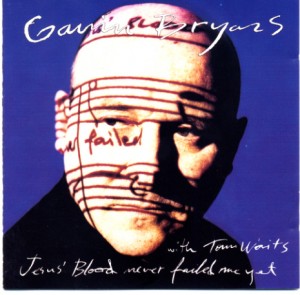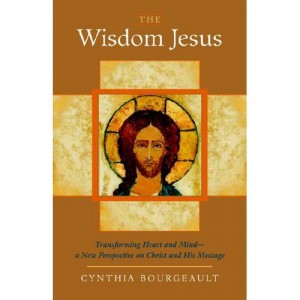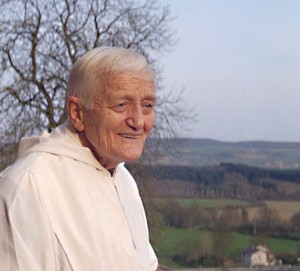As those of you who come to this blog via our front page www.sdgmusic.org probably already know, next week is going to be an intense one for SOLI DEO GLORIA, with three of our newly-commissioned works being sung for the first time. In addition they will all be coming to life on British soil, which curiously represents fresh territory in terms of SDG’s activity in the area of New Music. On Thursday May 10th the Grammy-nominated Danish vocal ensemble Ars Nova Copenhagen be giving the first performances of pieces by living legend Gavin Bryars (Psalm 141) and myself (the choral cycle Spiritus divinae lucis gloriae) at the Vale of Glamorgan Festival in Wales, while three days later the choir of Westminster Catholic Cathedral in London will be singing a fascinating new English/Hebrew setting of Psalm 135/136 by Roxanna Panufnik during Sunday Vespers.
I will certainly be reporting back on what should be an exciting few days, but before I head off in the direction of the Eurotunnel some equally serious business is afoot here in Paris on Monday, when I will have the privilege of conducting a radio interview on Fréquence Protestante with Rev. Cynthia Bourgeault, one of the most compelling contemporary writers and presenters working in the area of contemplative Christian spirituality. An Episcopal priest who spends much of the year at the Trappist hermitage on Eagle Island, Maine, Rev. Bourgeault is currently in France and will be speaking at the American Church in Paris on May 10. I had already known her work for some time through some captivating audio-visual footage of her presentations on Centering Prayer; What I did not realize, however, until I began to do some a little exploration in preparation for Monday’s interview, is that Cynthia Bourgeault is also a trained musicologist of impeccable pedigree, having studied here in France with none other than Nadia Boulanger. Not only that, but she also has a keen interest in New Music, having collaborated with the Aspen composer Ray Vincent Adams in creating a musical Passion setting to which she contributed the libretto .
Those interested in exploring Cynthia’s work will find a rich variety of resources on her web page, including a moving tribute to one of our mutual spiritual heroes, Brother Roger of Taizé and a thought-provoking series of ‘observations and reflections on the Future of Church’ (written in dialogue with Christopher Page); the issues on which she touches with great creativity are so wide-ranging that I feel a little daunted by the task of restricting our broadcast conversation on Monday to a mere 25 minutes! There is a well-nigh infinite range of topics we could discuss, but I suppose that if I had to focus on one key question it would be this – what is the significance of the re-discovery of the contemplative tradition not only for the Church but for our contemporary Western civilization, and why is this re-discovery happening at the present time? It is certainly a remarkable phenomenon that over the last few decades, an increasing number of people (including myself) have been drawn to the notion that the spiritual way forward for the West lies at least partially in ressourcement, a retrieval of ‘the sources’ of ancient Judeo-Christian spirituality (in which, as Thomas Merton and others such as Huston Smith and Harvey Cox have pointed out for a long time, many points of contact are to be found with the world’s other great wisdom traditions). Lest there be any misunderstanding here, I am not speaking about some archaizing, anti-scientific retreat into dogmatic religious certainties in the face of the perceived godlessness of late modernity. It may surprise some who associate monasticism with a quaint nostalgia for a distant bygone era to discover that Cynthia Bourgeault’s work is peppered with allusions to quantum physics and contemporary neuroscience. Such references are doubtless bound to raise the blood pressure of proponents of a reductionistic scientism such as the polemical blogger PZ Myers, whose current undignified spat with Montreal neuroscientist Mario Beauregard (co-author of The Spiritual Brain) over at www.salon.com is indicative of a skeptical mindset for which any rapprochement between science and spirituality is anathema. The parallels which Cynthia draws however definitely resonate with folks such as myself who view the idea of a remorseless struggle between science and faith as a socio-historical construct rather than a logical necessity, and who are convinced that we are currently witnessing the gradual emergence of new non-materialistic paradigms within science (pioneered by figures such as Beauregard) which will be far more amenable to dialogue with the world’s great faith traditions than is widely believed.
Although Cynthia Bourgeault’s writing and speaking on Centering Prayer is intimately linked to spiritual practice, it would be a mistake to think that her prime concern is the propagation of a set of meditative techniques; I would prefer to see her work more broadly in terms of passionate advocacy of the importance for our society of recovering a contemplative attitude towards reality. This stance, founded on an awareness of the inter-connectedness of creation’s participation in transcendental goodness, beauty and truth, is antithetical to the logic of domination that has marked so much of Western rationalistic thought since the Enlightenment, supremely expressed in the apotheosis of technology (Jacques Ellul’s système technique, a dualistic scheme in which an all-powerful human subject triumphs over lifeless matter). Such exclusionary binary thinking is marked by an inherent violence whose consequences for human community and the planet more generally are becoming ever more apparent. This, one might say, is the manifestation of the egoistic, aggressive chimp in all of us whom we so often fail to humanize (one of Cynthia Bourgeault’s choice expressions borrowed from Buddhist terminology is ‘monkey mind’) . A central contention of eminent modern contemplatives such as Cynthia Bourgeault and Richard Rohr is that this mentality – the source of many of our individual and social tensions – needs to be overcome by ‘non-dual’, holistic thought and living. To the extent that this transition can only come about by a renunciation of the ego’s desire to dominate others and the world, it requires a kenotic stance of self-emptying spoken of in many religious traditions, but for Christians supremely exhibited in the life of the Rabbi of Nazareth whose path Henri Nouwen famously called the ‘way of downward mobility’.
Which brings me to Gavin Bryars.
I sometimes ask myself what would be my top five pieces of sacred ‘classical’ music of the last fifty years. My truly indispensable Desert Island Discs (only one per composer allowed here). Olivier Messiaen would have to be onboard, although I’d be hard pressed to choose between La Transfiguration, Des Canyons aux Etoiles and St François d’Assise. At least one of Arvo Pärt’s masterpieces would surely also have to be in there (I’m spoilt for choice here – Como una cierva?, La Sindone? Perhaps Kanon Pokajanen, or maybe Tabula Rasa despite its lack of an overtly ‘sacred title’?). Steve Reich’s Tehillim would probably make it into the top five from the Jewish side, and I would be strongly inclined to take some Gorecki with me (Symphony n.2 or 3? Beatus Vir? Lerchenmusik?). Alfred Schnittke’s Choir Concerto, Sofia Gubaidulina’s Offertorium and Jean-Louis Florentz’s haunting Laudes for organ would all be strong contenders for inclusion. But one piece I cannot imagine not taking with me to any Desert Island would be Jesus’ blood never failed me yet by Gavin Bryars. Or, to be more precise, by Gavin Bryars and the unidentified ‘tramp’ whose singing is immortalized in this unique, unforgettable piece.
 On Bryars’ website you can find the now legendary story of how Jesus’ blood never failed me yet came into being as the composer was toying with some discarded tape from a documentary film about the London homeless made with his friend Alan Power in 1971. Making a tape loop out of a religious song sung by one of the film’s interviewees – not an alcoholic, it should be noted in passing – , Bryars took the reel for copying to the Fine Arts Department at Leicester Polytechnic (now De Montfort University) where he was working. There he noticed something quite unexpected:
On Bryars’ website you can find the now legendary story of how Jesus’ blood never failed me yet came into being as the composer was toying with some discarded tape from a documentary film about the London homeless made with his friend Alan Power in 1971. Making a tape loop out of a religious song sung by one of the film’s interviewees – not an alcoholic, it should be noted in passing – , Bryars took the reel for copying to the Fine Arts Department at Leicester Polytechnic (now De Montfort University) where he was working. There he noticed something quite unexpected:
‘The door of the recording room opened on to one of the large painting studios and I left the tape copying, with the door open, while I went to have a cup of coffee. When I came back I found the normally lively room unnaturally subdued. People were moving about much more slowly than usual and a few were sitting alone, quietly weeping. I was puzzled until I realised that the tape was still playing and that they had been overcome by the old man’s singing.’
This extraordinary reaction, with which almost anyone who has heard Jesus’ blood will surely empathize, persuaded Bryars to write ‘a simple, though gradually evolving, orchestral accompaniment that respected the tramp’s nobility and simple faith’, the result being ‘an eloquent, but understated testimony to his spirit and optimism’.
It is difficult, if not impossible, to give a verbal description of the impact of the tramp’s song (‘Jesus’ blood never failed me yet … this one thing I know, for he loves me so’) on the listener, but if any piece of music merits the word ‘kenotic’, it is surely has to be this one. Here I am not merely talking of the tramp’s material poverty; for those of a religious persuasion, the combination of simplicity and brokenness to be found in his singing encapsulates the pure faith of the ‘poor in spirit’, while even many who do not share the tramp’s belief still find themselves overwhelmed by the sound of the elderly man’s voice as somehow epitomizing the human condition. Moreover, Jesus’ blood is also ‘kenotic’ from the viewpoint of the composer (who, intriguingly, was at the time primarily interested in Zen Buddhism, having become disillusioned as a student with the Congregationalist faith in which he had been raised[1]); the artistic success of the work derives in large measure from Bryars’ own receptivity to his objet trouvé and sensitivity to the inflections of the voice, which the piece follows sympathetically without ever seeking to manipulate, simply allowing it to be itself. This kind of artistic renunciation, the refusal to view composition as an act of imposition of the will on the musical material, sometimes termed spiritual minimalism – which Arvo Pärt, Henryk Gorecki and Valentin Silvestrov also all remarkably discovered independently of one another in the early 1970s – would seem to be the very stuff of contemplative, non-dual thinking. It might in addition be said that this music also requires a ‘kenotic’ attitude from the listener, who needs to let go of the intellectual gratification associated with strongly directional musical form and expectations of ‘development’; appreciating a piece such as Jesus’ blood does not so much require analysis as surrender.
I am perhaps not alone when I say that there are days in which I feel incapable of listening to any music other than Jesus’ blood never failed me yet, either in its original 1975 version or the extended treatment of 1993 featuring Tom Waits. Interestingly, the closest approximation I know to it is the repetitive prayer music written by the French organist Jacques Berthier for the Taizé Community (a subject on which Cynthia Bourgeault offers some thoughtful insights in her book The Wisdom Jesus: Transforming Heart and Mind–A New Perspective on Christ and His Message), which at times bears a very strong aural resemblence to a tape loop. I vividly recall being part of a choir singing the refrain Spiritus Jesu Christi, Spiritus caritatis for a full 25 minutes at the Taizé European meeting in Wroclaw, Poland in 1989 – the same length as the 1975 recording of Jesus’ blood never failed me yet. Structured in a strangely similar manner to Gavin Bryars’ work and often communicating the same sense of timelessness, the music of Taizé is shot through, like the singing of the nameless elderly London tramp, with the spirit of the First Beatitude, as it is put in the words of one of Berthier’s most disarmingly simple canons:
Confiance du coeur, source de richesse. Jésus, donne-nous un coeur de pauvre
[Trust of the heart, source of riches. Jesus, give us poverty of heart]
Peter Bannister and Rev. Scott Herr in conversation with Cynthia Bourgeault on Fréquence Protestante: ACP Today with Cynthia Bourgeault (click for audio: interview begins at 7:00)
Details of her presentation at the American Church in Paris can be found at http://www.acparis.org/thurber-thursdays/438-the-rev-dr-cynthia-bourgeault-speaks-at-thurber-thursday-and-the-annual-spring-retreat-for-adults
Further information about the Ars Nova Copenhagen concert featuring Gavin Bryars’ new setting of Psalm 141 and Peter Bannister’s Spiritus divinae lucis gloriae can be found at http://valeofglamorganfestival.org.uk/concerts/ars-nova-copenhagen/
__________________
[1] A fascinating interview with Gavin Bryars discussing his Church upbringing and ongoing relationship with Christian spirituality (as well as Zen) can be found at http://www.gavinbryars.com/work/writing/occasional-writings/choral-music-re-questions


